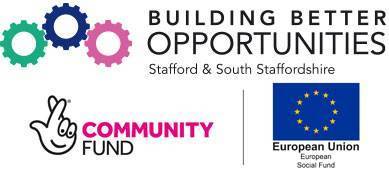Understanding Leave For New Parents Employment
Congratulations! Whether this is your first or third child, the decision to bring a life into the world is always a happy event.
However, your rights when it comes to parental leave can be a little unclear. While many organisations offer their own level of leave, everyone is allowed Leave to help raise their child as a matter of law. In order to give you a full understanding of your rights when it comes to parental leave, we’ve put together this handy article. Read below to find out more!
Note: The legislature within this document is current as of Thursday 14th April 2022.
Leave For Birth
Current British legislation allows for Adoption, Maternity and Paternity leave – allowing both parents time to bond and support the family during the early days.
Adoption
Under current legislation, parents who are adopting will receive 26 weeks of Ordinary Adoption Leave and 26 weeks of Additional Adoption Leave, similar to Maternity Leave.
The key difference between the two is when Adoption Leave can start. Adoption Leave can currently start:
- 14 days before the child starts to live with you (for inter-UK adoptions).
- When the child arrives within the UK or within 28 days of that date (for non-inter-UK adoptions).
- The day the child is born or the day after (if the child was born via a surrogate).
If you are adopting with a partner, only one of you can receive Adoption Leave: the other may be entitled to Paternity Leave.
If you need to change the date that your Adoption Leave starts, you must do so within 28 days if the date of placement changes. Likewise, if you need to change the return to work date, you must give your employer at least eight weeks notice.
Maternity
Similar to Adoption Leave, Maternity Leave allows for 26 weeks of Ordinary Maternity Leave and 26 Weeks of Additional Maternity Leave. While you do not have to take the full-52 weeks of Maternity Leave, you must take at least 2 weeks maternity leave following the birth of your baby (extended to 4 weeks if you work in a factory).
The earliest you can start your maternity leave is 11 weeks before your due date. However, your maternity leave can start at several other points, depending on the situation. For example:
- Maternity Leave could start the day after birth if the baby is early.
- Alternatively, if you suddenly have to take work off because of a pregnancy-related illness in the 4 weeks before the week your baby is due you can begin your Maternity Leave then.
Like Adoption Leave, you must give your employer 8 weeks’ notice if you want to change your return to work date.
Note: Maternity, in this case, refers to the parent who gave birth.
Paternity
Paternity Leave allows for 1 or 2 weeks. You must take this leave at once, and it must end within 56 days of the baby’s birth.
As with the other two options, you must give your employer 28 days notice if you want to change the start date. Likewise, it’s not important that you give a precise date for when your paternity leave starts. You could give a general time, such as the day of birth or 1 week after birth.
Note: Paternity, in this case, refers to the parent who did not give birth.
Shared Parental Leave
Shared Parental Leave is a process by which one person taking Maternity Leave splits their leave between themselves and another parent. In this way, you can share up to 50 weeks of leave or 37 weeks of pay between you and your partner. This share must occur in the first year of your child’s life.
However, while Shared Parental Leave is a fantastic way to increase the amount of time you and your partner have to spend with your child, not every family is eligible for it. You must meet a certain set of criteria and give notice to your employer before you can claim Shared Parental Leave.
Welfare Advice in Stafford and Staffordshire
This article has been prepared by Building Better Opportunities, an employment and welfare advice charity based in Staffordshire, England. We offer employment advice in Staffordshire, as well as the wider local area.
We offer a free, bespoke, face to face service designed to get you back into work or work placements.
For more information on the services we offer, contact Building Better Opportunities today.
